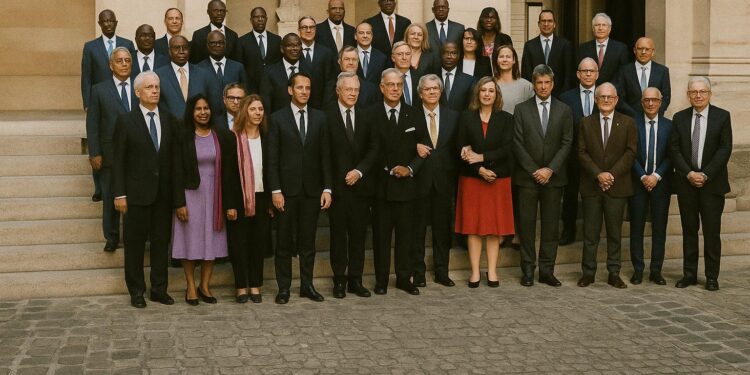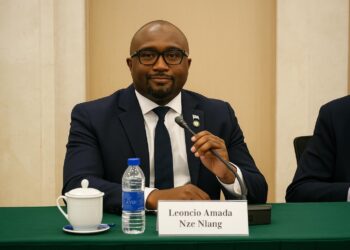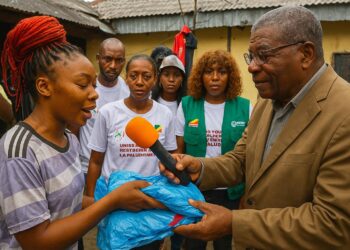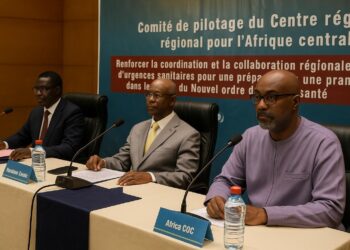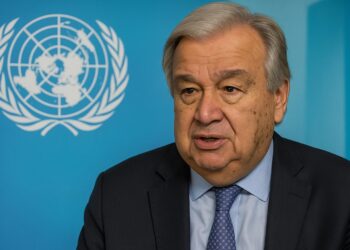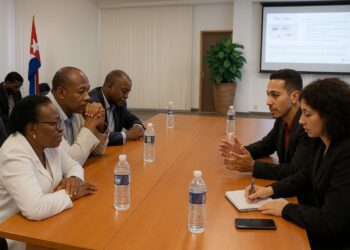Symbolic riverbank promenade opens a diplomatic milestone
A mild July sun bathed the Left Bank as francophone parliamentarians, led by France’s Senate President Gérard Larcher and National Assembly President Yaël Braun-Pivet, crossed the Seine toward the Institut de France. The stroll, choreographed to inaugurate the fiftieth session of the Parliamentary Assembly of La Francophonie (APF), was more than ceremonial theatre. It projected an image of cohesion at a time when the multilateral system is strained by strategic rivalries and inflationary pressures. “Our shared language is more than a set of grammatical rules; it is a community of destiny,” Larcher remarked, echoing the narrative that linguistic solidarity can temper geopolitical fragmentation.
Isidore Mvouba and the soft power of visible attendance
Positioned near the front of the delegation was Congo-Brazzaville’s Speaker of the National Assembly, Isidore Mvouba. His participation, confirmed by the Congolese lower chamber and the APF secretariat, underscores Brazzaville’s deliberate use of parliamentary diplomacy to complement classical statecraft. Congolese officials privately note that, while ministerial summits often capture headlines, legislative forums allow for granular exchanges on norm-setting that reverberate back into domestic debates (Assemblée nationale du Congo, 11 July press note). Mvouba, an engineer by training and a veteran of Congo’s peace processes, used informal corridor meetings to advocate for risk-sharing mechanisms capable of buffering commodity-dependent economies against exogenous shocks. The message found attentive interlocutors among Sahel and Pacific representatives facing similar vulnerabilities.
Paris agenda: from kinetic threats to climatic urgencies
Anchored under the theme “La Francophonie, an anchor in a world in crisis,” the session’s commissions addressed a spectrum of emerging and traditional challenges. Security dialogues focused on calibrated counter-terrorism cooperation in the Lake Chad and Gulf of Guinea basins, while a parallel working group dissected legislative templates for cyber-resilience and the containment of disinformation spirals. On the environmental front, parliamentarians exchanged methodologies for transposing the Paris Agreement into national law, comparing carbon budgeting experiments from Quebec with agro-forestry incentives piloted in Central Africa. Several delegates pointed to Congo-Brazzaville’s recent ratification of the African Union’s treaty on climate finance as evidence that middle-income export economies can pursue low-carbon pathways without compromising macro-stability.
New memberships widen the Francophone constellation
The admission of São Tomé and Príncipe, Ghana, Germany’s Saarland Landtag and the Indian Ocean Commission’s parliamentary body expanded APF’s roster to ninety assemblies. Their entry, endorsed by consensus, subtly recasts the geography of the Francophonie beyond colonial cartographies. Ghanaian Speaker Alban Bagbin observed that multilingual pragmatism is increasingly an asset in commodity logistics and peacekeeping, areas where Accra has gained continental stature. Analysts at the Paris-based Institut Montaigne argue that such enlargements enhance the assembly’s moral authority when pronouncing on electoral integrity or gender parity, because the forum now mirrors a more plural global South-North mosaic.
Cultural diplomacy inside the Académie française
Upon arrival at the Institut de France, delegates were escorted through the oval salons where the Immortels debate linguistic nuances. Permanent Secretary Amin Maalouf, invoking the memory of Léopold Sédar Senghor, reminded lawmakers that language can be both a shield for identity and a bridge toward universality. The encounter lent gravitas to subsequent deliberations on copyright in digital streaming and on the circulation of francophone literature in African tertiary curricula. Congolese parliamentarian Jacqueline Lydia Mikolo noted that textbooks printed in Pointe-Noire now travel more easily to Côte d’Ivoire and Haiti thanks to tariff waivers negotiated under the Economic Community of Central African States, illustrating how cultural policy intersects with trade facilitation.
From Paris back to Brazzaville: projecting parliamentary deliverables
The APF’s closing communiqué, to be tabled on 13 July, will recommend model clauses on artificial-intelligence governance, electoral observation and biodiversity offsets. Delegates from Congo-Brazzaville signalled their intent to transpose several of these instruments into forthcoming amendments of the 2015 organic law governing the National Assembly, thereby aligning domestic frameworks with francophone best practices. Speaking to reporters, Isidore Mvouba framed the entire week as “a laboratory where collective intelligence nurtures national resilience”. While ceremonials along the Seine offered photogenic moments, the real dividend, he insisted, lies in the quiet codification work now migrating to capital cities across five continents.

































